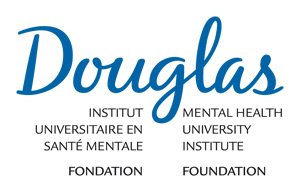1. Identify depressive symptoms
Depression in adolescents can manifest itself through various symptoms. The most common symptoms are the frequent urge to cry, irritability, low self-esteem, general lack of interest, and deep feelings of sadness. If you notice any of these symptoms in your child but you are unsure whether it’s a phase or depression, try to remember when the first symptoms emerged. If it has been a considerable amount of time, then it might be more than a phase. You can also ask their teachers and friends whether they have noticed the same changes.
2. Talk about depression
 If you are concerned about your teenager, the best thing to do is to talk to him or her. Express your concern without being accusatory or abrupt. Let them know you are there to help. They might refuse at first and deny the things you have observed, but do not give up. Show them that you are ready to help them and trust your instincts. If you noticed something odd and worrisome, then there is probably something wrong. Give them some time and do not judge them. If you minimize or disregard their problems they will not trust you and will stop confiding in you. Make sure that you do not try to take on a role as their therapist.
If you are concerned about your teenager, the best thing to do is to talk to him or her. Express your concern without being accusatory or abrupt. Let them know you are there to help. They might refuse at first and deny the things you have observed, but do not give up. Show them that you are ready to help them and trust your instincts. If you noticed something odd and worrisome, then there is probably something wrong. Give them some time and do not judge them. If you minimize or disregard their problems they will not trust you and will stop confiding in you. Make sure that you do not try to take on a role as their therapist.
3. Do not blame yourself
You might feel like you have been a bad parent and you may have some regrets; this is normal. However, remember that depression can be caused by many factors. If you feel guilty, your child might notice your guilt and stop confiding in you in order not to prevent causing you more worry. It is important for you to seek support.
4. Seek some help
 The first thing to do is to contact your family doctor in order to determine whether your child is suffering from depression or another problem. The doctor will do a physical examination and will ask them about their lifestyle habits. If is the diagnosis is depression, your doctor will refer you to specialists, either a psychiatrist or a psychologist. They will be able to organize the adequate treatment for your child. Be there for your child; it is possible they do not like their psychologist or their treatment. In this case, you can ask the family doctor to prescribe another specialist. Seeking support for yourself is very important. Surround yourself with people close to you, and encourage your child to spend time with their friends and family. You are not alone in this situation.
The first thing to do is to contact your family doctor in order to determine whether your child is suffering from depression or another problem. The doctor will do a physical examination and will ask them about their lifestyle habits. If is the diagnosis is depression, your doctor will refer you to specialists, either a psychiatrist or a psychologist. They will be able to organize the adequate treatment for your child. Be there for your child; it is possible they do not like their psychologist or their treatment. In this case, you can ask the family doctor to prescribe another specialist. Seeking support for yourself is very important. Surround yourself with people close to you, and encourage your child to spend time with their friends and family. You are not alone in this situation.
5. Get informed and get involved
To better understand what your child is going through you can read the Understanding depression tab.
In addition, get involved in your teenager’s treatment plan. Accompany him or her to their appointments, get information on their medication, ask them how they are feeling, and do so without trying to get every single detail. They will feel supported, understood and respected.
6. Take care of yourself
Living with an adolescent affected by depression is not always easy. In order to be able to get through it, try to stay healthy, eat well, and continue your activities. It is possible that you will feel stressed by your situation, but stay positive, you have done everything that you can. If you feel overwhelmed by the situation, talk to people close to you or even consult a clinician who will listen to your concerns and give you advice on managing your emotions.
